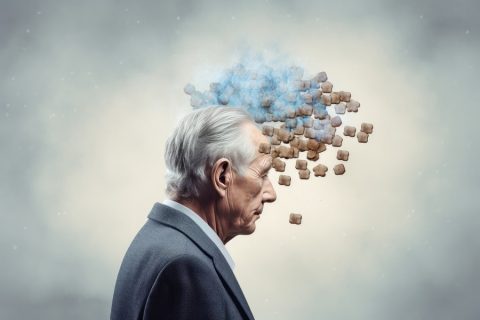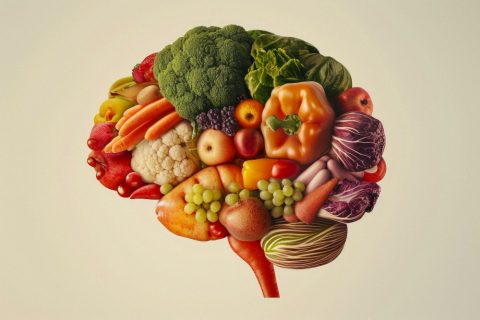Medically Reviewed by:
Khushal Girigosavi, a peer reviewer at the Cureus Journal with numerous research papers to his name, maintains high standards in medical research.
Have you ever wondered what happens to the brain as we age? It’s quite fascinating, really. Our brains are like beautiful, intricate machines that work tirelessly to keep us functioning at our best. But sometimes, as the years go by, certain conditions can affect our brain health and lead to changes in cognition and memory. One such condition is dementia.
Dementia is a neurological disorder that affects millions of people around the world, including many Indian seniors. It’s vital to understand the different stages of dementia and the symptoms that may accompany each stage so that we can provide the best care and support for our loved ones who may be going through this journey.
The stages of dementia refer to cognitive decline phases that may progress from mild to severe. Each stage presents its own set of challenges and symptoms, which can vary from person to person. As caregivers, family members, or individuals living with dementia, it is crucial to have a thorough understanding of these stages to navigate through this complex condition with empathy and compassion.
In this blog, we will explore the Stages of Dementia in detail, discussing the common symptoms associated with each phase and providing insights into what individuals and their loved ones can anticipate during this journey.
So, let’s dive into the world of dementia progression and gain a deeper understanding of what lies ahead.
Stage 1: No Cognitive Decline
In this stage people are often healthy and normal with no memory loss.
Stage 2: Very Mild Cognitive Decline
People often suffer from mild forgetfulness associated with aging. Symptoms are not prominent and cannot be picked up by either the family or the physician.
Stage 3: Mild cognitive Decline/Impairment
In the early stages of dementia, also known as mild cognitive impairment (MCI), individuals may experience subtle changes in their memory and thinking abilities. They may have difficulty remembering recent events or finding the right words during conversations. These changes are often noticed by family members or close friends.
It’s essential to remember that mild cognitive impairment does not always progress to dementia. In some cases, these changes may remain stable or even improve over time. However, if MCI does progress to dementia, it typically advances gradually.
| Did you know? 10-20% of people age 65 or older with MCI develop Dementia within a year. This estimate underscores the significance of understanding and addressing cognitive changes in ageing populations. |
Stage 4: Moderate Cognitive Decline
As dementia progresses from the mild cognitive impairment stage, individuals enter the early stage of the disease. At this point, cognitive decline becomes more apparent. Memory loss becomes more noticeable and may impact daily life activities such as forgetting appointments or misplacing items regularly.
Personality changes are exhibited and hallmark signs are present during Stage 4.
Other symptoms that may emerge include –
- Difficulties with problem-solving
- Reduced attention span, and
- Increased confusion in unfamiliar situations.
People in the early stage of dementia can often still maintain their independence with support from family and caregivers.
Stage 5: Moderately Severe Cognitive Decline
The moderate stage is when dementia symptoms become more pronounced and start interfering with daily functioning. During this phase, memory loss worsens significantly, making it challenging for individuals to remember familiar faces and places.
In addition to memory problems, people with moderate-stage dementia may experience –
- Mood swings,
- Agitation
- Restlessness, and
- Increased confusion about time and location.
They are unable to carry activities of daily living such as dressing, bathing, and require assistance in managing finances, doing laundry, etc.
| A quick tip: Enhance safety in living spaces by minimising hazards. Eliminate tripping risks and secure potentially harmful items to create a safer environment for individuals, particularly seniors, ensuring a protective and secure living space. |
Stage 6: Severe Cognitive Decline
In the severe stage of dementia, Indian seniors experience a significant decline in cognitive abilities and become highly dependent on others for their care. Memory loss is profound, and people often fail to recognise their loved ones or recall significant life events.
Communication becomes severely impaired, with individuals struggling to express their needs or understand verbal instructions. Physical health declines as well, leading to difficulties with mobility, eating, and continence.
Stage 7: Very Severe Cognitive Decline
The end-stage of dementia is characterised by a severe loss of cognitive and physical function. Individuals may become bedridden, lose the ability to speak, and have difficulty swallowing. At this stage, round-the-clock care is required to manage symptoms and ensure the person’s comfort.
| Fact check: What is hospice care? Answer: Hospice care is specialised end-of-life support focusing on enhancing the quality of life for individuals with terminal illnesses. It addresses physical, emotional, and spiritual needs, aiming for comfort and dignity. |
Navigating dementia care for holistic well-being
Here are some factors that contribute to a meaningful dementia care journey:
- Creating a supportive environment: The physical and emotional environment plays a pivotal role in the well-being of someone with dementia. Simplifying surroundings, minimising distractions, and creating a routine contribute to a sense of security. A supportive environment also involves clear and compassionate communication, using gestures, expressions, and non-verbal cues to enhance understanding and connection.
- Acknowledging enduring qualities: While cognitive abilities may shift, the fundamental qualities that define a person endure. Their sense of humour, preferences, and emotional responses remain integral aspects of who they are. Recognising and celebrating these enduring qualities helps maintain a connection that goes beyond the challenges posed by dementia.
- Fostering emotional connections: Love and empathy serve as powerful bridges, transcending the limitations imposed by cognitive decline. Simple gestures of affection, familiar routines, and shared activities contribute to a sense of connection. The emotional bond forged through love becomes a reservoir of strength, enriching the lives of both the individual with dementia and their loved ones.
In conclusion, understanding the stages of dementia and what to expect can provide valuable insight into the journey you or your loved one may be facing. By knowing the symptoms and progression of this condition, you can better prepare yourself emotionally and plan for future care needs.
Dementia progresses through several stages, starting with mild cognitive impairment and progressing to severe cognitive decline. Each stage brings its own set of challenges and changes in memory, thinking, behaviour, and daily functioning. It is important to remember that everyone’s experience with dementia is unique, and the rate of progression can vary from person to person.
If you suspect that you or a loved one may be experiencing dementia symptoms, it is crucial to seek medical evaluation. A healthcare professional can perform tests and assessments to determine the underlying cause of these symptoms and provide appropriate recommendations for management and care.
Additionally, there are self-administered tests available that can help assess cognitive function at home. These tests can provide insights into memory, attention, language, and other cognitive abilities. However, it is important to remember that these tests cannot replace a comprehensive evaluation by a healthcare professional.
Take a proactive step towards understanding your cognitive health. Explore cognitive tests tailored to your needs at Ivory. Our dedicated team of experts is ready to guide you on your journey to cognitive wellness. Don’t hesitate—empower yourself today.
Discover how well your brain is ageing and improve memory, focus, and attention. Take control of your cognitive age today!




